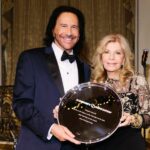By: Taylor Graveline
The world has long enjoyed a rising trend in life expectancy, but recent research suggests many of today’s children may not live to see 100. The steady march toward longer lives has stalled and, in some regions, reversed.
Dr. Gowri Rocco, a leading expert in anti-aging and functional medicine, believes that modern dietary habits, paired with environmental factors like potential exposure to genetically modified organisms (GMOs) and pesticides, are driving this disturbing trend. She suggests adopting a more natural diet inspired by the Blue Zones, areas known for their long and healthy lifespans.
Impact of Modern Eating Habits
Dr. Rocco’s analysis of today’s food culture sheds light on how modern dietary habits could be contributing to the troubling decline in life expectancy. For decades, advancements in healthcare and technology have fueled longer lives. Yet, as Dr. Rocco explains, “Modern lifestyles and dietary habits may be contributing to the decline in life expectancy for children today. A key factor is the decrease in food quality and safety, particularly in the U.S., where some foods contain GMOs, pesticides, and processed additives, which are concerns for many experts.”
This issue focuses on the quality of food available to American families. Dr. Rocco highlights that the increase in processed foods and the liberal use of additives can disrupt hormonal balance in certain cases, potentially leading to obesity and other health risks.
“Processed foods often contain endocrine-disrupting ingredients,” she warns, “which research has linked to obesity and other chronic conditions. However, more studies are needed to establish a definitive cause-and-effect relationship.” Modern diets rich in processed ingredients fail to provide the nutrients our ancestors relied on from whole, unadulterated foods.
The recent outbreaks of listeria and mass recalls of contaminated meat highlight the dangers posed by a food system that sometimes prioritizes convenience and profit over health. For Dr. Rocco, “If we want to see healthier future generations, we need to prioritize clean, whole foods free of GMOs and other harmful additives. It’s about returning to what Mother Nature intended—nutrient-dense foods grown in healthy soil.”
The Dangers of GMOs and Pesticides
The dangers of genetically modified organisms (GMOs) and pesticide use in U.S. agriculture are a major reason for the rising health issues Dr. Rocco observes in her patients. GMOs, she notes, may increase crop yields and improve resistance to pests, but the risks of consuming such foods are still a growing concern among many health experts. “GMOs and unsafe pesticides pose significant health risks,” she says, highlighting the potential harm of these agricultural practices, especially for children.
Studies have shown that GMOs can lead to changes in the immune system, and the pesticides sprayed on them may cause neurological and hormonal disruptions. According to a report from the American Academy of Pediatrics, these genetically altered foods carry unknown risks, particularly when they are consumed consistently over time. Dr. Rocco stresses the importance of avoiding these potential toxins, which are often abundant in U.S. grocery stores and restaurants. Her concern is not just for individual health but for generational wellness. “The more we expose ourselves and our children to these chemicals,” she emphasizes, “the more we risk compromising future generations’ health.”
In the Blue Zones, where life expectancy is significantly higher, agricultural practices tend to prioritize natural methods. These methods limit pesticide and GMO use and allow crops to grow in a way that retains their natural nutritional value. Dr. Rocco argues that adopting these agricultural standards and focusing on organic, non-GMO foods could help the U.S. achieve similar health outcomes.
The Blue Zone Diet
The Blue Zones—such as Ikaria in Greece and Okinawa in Japan—boast more centenarians than anywhere else on Earth. These regions share several characteristics, including active lifestyles, strong community bonds, and, most importantly, a plant-based, whole-food diet. Dr. Rocco is a passionate advocate of the Blue Zone diet as a potential way to support health and longevity. “The Blue Zone diet is a great example of how quality nutrition may directly impact longevity,” she says.
The Blue Zone diet focuses on vegetables, legumes, whole grains, and nuts, with meat, dairy, and processed foods being consumed sparingly, if at all. “In places like Greece and other Blue Zones, the soil quality is excellent, and food safety regulations are stricter, especially when it comes to pesticides and GMOs,” Dr. Rocco explains. This leads to foods with higher nutrient density that support cellular health and reduce the likelihood of diseases commonly associated with aging.
The Blue Zone diet has high omega-3 content, often derived from fish and nuts. It has also been shown to support brain health and lower the risk of dementia, a growing concern in modern societies. Furthermore, avoiding refined sugars and unhealthy fats helps people in these regions experience lower rates of obesity and type 2 diabetes, health conditions that continue to plague Western nations. Dr. Rocco states, “The focus on whole, non-GMO, and seasonal foods grown in healthy soil makes the Blue Zone diet an effective model that supports a long and healthy life.”
A Return to Nature
Dr. Gowri Rocco believes that reclaiming life expectancy starts with a return to nature—both in our agricultural practices and in our diets. This means emphasizing whole, non-GMO foods and minimizing artificial additives and heavily processed ingredients.
For those interested in shifting towards a Blue Zone-inspired diet, Dr. Rocco advises beginning with small changes. Start by replacing processed snacks with fruits, nuts, and vegetables, and look for organic, non-GMO labels when buying staples. Cooking at home can also help individuals control what goes into their meals, reducing exposure to unhealthy fats, sugars, and preservatives.
Dr. Rocco also stresses the importance of eating seasonally. Foods grown in season tend to have higher nutritional content, as they do not rely on artificial ripening processes or excessive chemicals to grow. “Eating as nature intended,” she encourages, “can help reduce the health risks associated with modern agricultural practices and bring us closer to the longevity and wellness observed in Blue Zone regions.”
Disclaimer: Readers should consult with healthcare professionals before making significant dietary changes, particularly if managing chronic health conditions or allergies. Dr. Rocco’s views are based on her clinical practice and research but may not reflect universal consensus on these topics. As Dr. Rocco highlights, the decline in life expectancy should be a wake-up call. While scientific advancements have brought us many health benefits, it is clear that some modern conveniences, particularly in food production and consumption, may be costing us more than they are worth.
Published by Iris S.

















